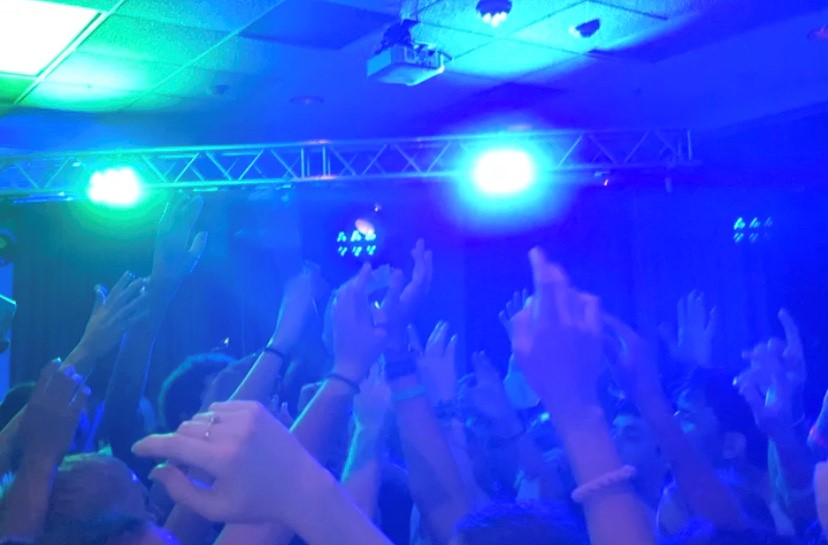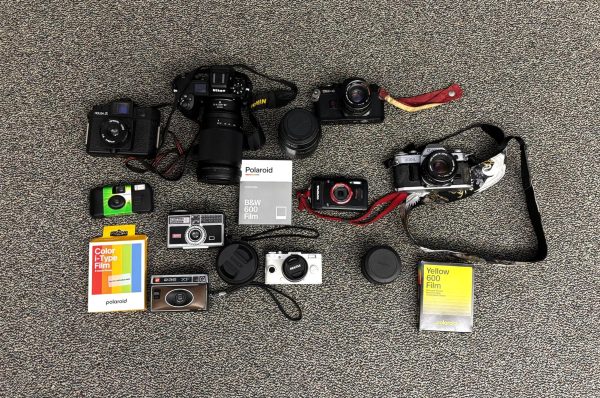Opinion: Our drinking age is not realistic and even dangerous
A little less than 2,000 college students ranging from 18 to 24 years old die from unintentional, alcohol-related injuries each year. Facts like this often prompt heated debates about the drinking age and if it should be lower than 21 or not. The answer is not black or white, but somewhere in a big grey zone. There are valid pros and cons for each side and I think it is important to find a healthy balance in between.
Critics of the current drinking age often bring up the point of tolerance. With no drinking experience, teenagers do not get the chance to get to know their body with alcohol, let alone build up some sort of tolerance before they go to college. But studies show that full-time college students drink an average of 6.4 days each month and consume an average of 4.1 drinks on each occasion. That does not fit together, at least not immediately.
With not being used to alcohol at all and then suddenly starting binge drinking when going to college, the risk for injuries and incidents such as alcohol poisoning, which oftentimes can be fatal, increases drastically.
Each year, 599,000 who are under the influence of alcohol are unintentionally injured and 22,219 are hospitalized for an alcohol overdose. Approximately 2,200 alcohol-poisoning deaths occur each year in the United States; 5 percent of those happen to people aged 15–24.
College parties are a very unsafe environment to learn how to responsibly handle alcohol and get to know your own limits. Also, teens will be more prone to pick up unhealthy habits regarding alcohol consumption. About 90% of the alcohol consumed by youth under the age of 21 in the United States is in the form of binge drinks.
So, a solution could be lowering the drinking age. Would it really be a solution though? Maybe. In Germany, where I am from, the drinking age is 14 for beverages under 25% with the permission of a parent or guardian; with 16 you can buy beverages under 25% without parental permission, and then everything else from age 18 and up, like in most European countries.
Now the theory is great: teens can slowly get used to it in a safe environment with their parents, get to know their limit and their tolerance, as “the legislation is not designed to keep young people away from alcohol completely, but rather to teach them an appropriate approach to alcohol consumption.”
Well, reality looks a bit different. Because alcohol is made fairly accessible and easy to get for teenagers, the risk for abuse also increases. Although technically spirits are only allowed for people 18 and older, since you can legally consume some sort of alcohol with 16 and therefore go to parties, the “hard stuff” is way more accessible to teenagers as it is very likely that multiple age groups will be present at those parties.
Such alcohol consumption bears many risks and health consequences, including but not limited to negative effects on adolescent brain development, permanently damaging the liver and bone development; also, the suicide risk increases. Approximately 21,700 children and youth between the age of 10 and 20 years were hospitalized due to alcohol poisoning in Germany in 2017.
On the other hand, partying when being used to alcohol a little because you can try it with your parents is probably still safer than partying without all that. It is for sure that teens everywhere go to parties, no matter being of age or not. 62% of teenagers here report going to at least one party a month.
So, what should we conclude? Prohibit drinking totally until 21, even though most teenagers will still party and then have a higher risk of illness, injury, and even death? Or go down to 16, try to get teenagers to know their limit while taking the risk of all the damage underage drinking could do when it is not being done moderately?
Well, as I said in the beginning, the answer is somewhere in between. Personally, I think 21 is too high and not realistic while 16 might be a little too low; but I think the idea of trying to create a healthy awareness in teens around alcohol is reasonable and even important, as just prohibiting it can be very dangerous. Maybe 18 is a good age to allow drinking, and before that, we should even encourage teens to get to know their body and alcohol in a safe environment with parental supervision and good information, maybe with 17 or a reasonable age before most teenagers start partying or binge drinking. At the end of the day, we need to keep in touch with reality and should prioritize the teenagers’ safety first.
Your donation will support the student journalists of Fossil Ridge High School. Your contribution will allow us to purchase equipment and cover our annual website hosting costs.

Emilia Helbig is a foreign exchange student from Munich, Germany, spending her sophomore year of high school in the United States. She is starting her second semester on the Etched in Stone staff, after taking Journalism 1 last semester. She is excited to write on the staff again and explained how much...













